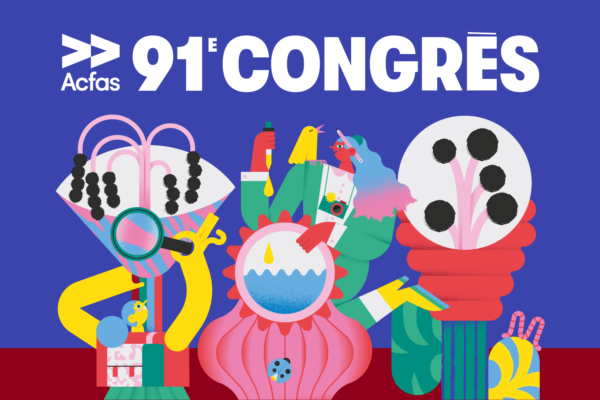- Science and Society
As part of the Montréal Climate Summit, eight academic institutions commit to climate resilience.

Green wall. Credits: Louise Hénault-Ethier
The Institut national de la recherche scientifique (INRS) reiterates its commitment to accelerating climate action and resilience in the metropolis, with a view to achieving carbon neutrality by 2040.
Eight universities have pledged, to work together and support the climate resilience of the Montreal community by sharing their knowledge and practices: École de technologie supérieure (ÉTS), INRS, HEC Montréal, Polytechnique Montréal, McGill University, Concordia University, Université de Montréal (UdeM), and Université du Québec à Montréal (UQÀM).
“Universities have a major role to play in the socio-ecological transition. As places of knowledge and innovation, our institutions do more than educate. Through research, they help find science-based solutions and share cutting-edge knowledge with the rest of our society. The collaboration we are celebrating today between our eight Montreal universities demonstrates a strong desire to work hand in hand, and to solve complex global issues.”
Luc-Alain Giraldeau, General Manager, INRS

The eight institutions commit to:
- Collaborating to accelerate climate action and community resilience;
- Adopting a common methodology to measure Scope 3 indirect greenhouse gas (GHG) emissions, addressing priority sources such as procurement, technologies, and travel;
- Carrying out a joint analysis of climate risks and vulnerabilities, and developing adaptation plans specific to each institution;
- Sharing methodologies and analyses with external companies and organizations;
- Sharing progress on the implementation of their joint commitments at the next Montréal Climate Summit in May 2025.
For several years now, INRS has been advancing research into climate resilience and actively participating in the creation of promising networks.
For example, in collaboration with Polytechnique Montréal, INRS is conducting a study on the socio-environmental repercussions of telecommuting by quantifying the CO2 emissions of its community. This unprecedented participatory research project, which began in 2021, is funded and supported by the Partenariat Climat Montréal (PCM) and is part of a drive to take concrete action to tackle climate change.
INRS also recently teamed up with ÉTS to launch a $50,000 call for projects under the ÉTS Climate Change Research Fund (FRECC).
This joint call, which is open to submissions until May 31, 2024, will fosterresearch collaboration and networking between the two institutions, encouraging multidisciplinary and complementary efforts between their specialist disciplines.
Equity at the heart of climate change adaptation research
Professor Sophie L. Van Neste, holder of the Canada Research Chair in Urban Climate Action, co-directs the Climate Equity Lab with professors Nathan McClintock of INRS and Olivier Riffon of the Université du Québec à Chicoutimi (UQAC).
A veritable living laboratory, this new group is dedicated to addressing questions of equity involved in adapting to climate change in Quebec. This is a crucial factor to take into account in order to avoid exacerbating inequalities when taking steps to adapt to the climate crisis. For example, greening a neighbourhood to reduce urban heat islands can have consequences for poorer populations, who are affected by gentrification. Flood protection measures can also disadvantage marginalized groups.
The aim of the project is therefore to produce a toolbox that will bring together a wide range of knowledge and experience to provide community players with the keys to combat climate change.
The research team will be supported by an advisory committee of around ten members from the public health sector, government departments, and community organizations. The aim is to draw on observations and realities in the field using a co-construction approach in order to come up with concrete, useful solutions.
Raise awareness and contribute to climate action through research
A series of webinars around COP28 involving faculty members from 18 Quebec universities, including INRS, was held in the fall of 2023 as part of INRS’ Sustainable Development Action Plan.
The Canada Research Chair in Urban Climate Action is organizing a free webinar (in French) on May 24, 2024 to launch the Cities, Climate, and Inequalities Research Directory. The public will have the opportunity to exchange views and ask questions of the various contributors to the project, which aims to mobilize and disseminate recent research on the links between inequalities, climate action, and the socio-ecological transition, in cities of different sizes, regions, and contexts.
You may also like

July 18, 2024
INRS and ÉTS join forces for climate action
April 23, 2024
INRS at the 91st Acfas Congress
January 17, 2024
Public transit: focus on the quality of the pedestrian network